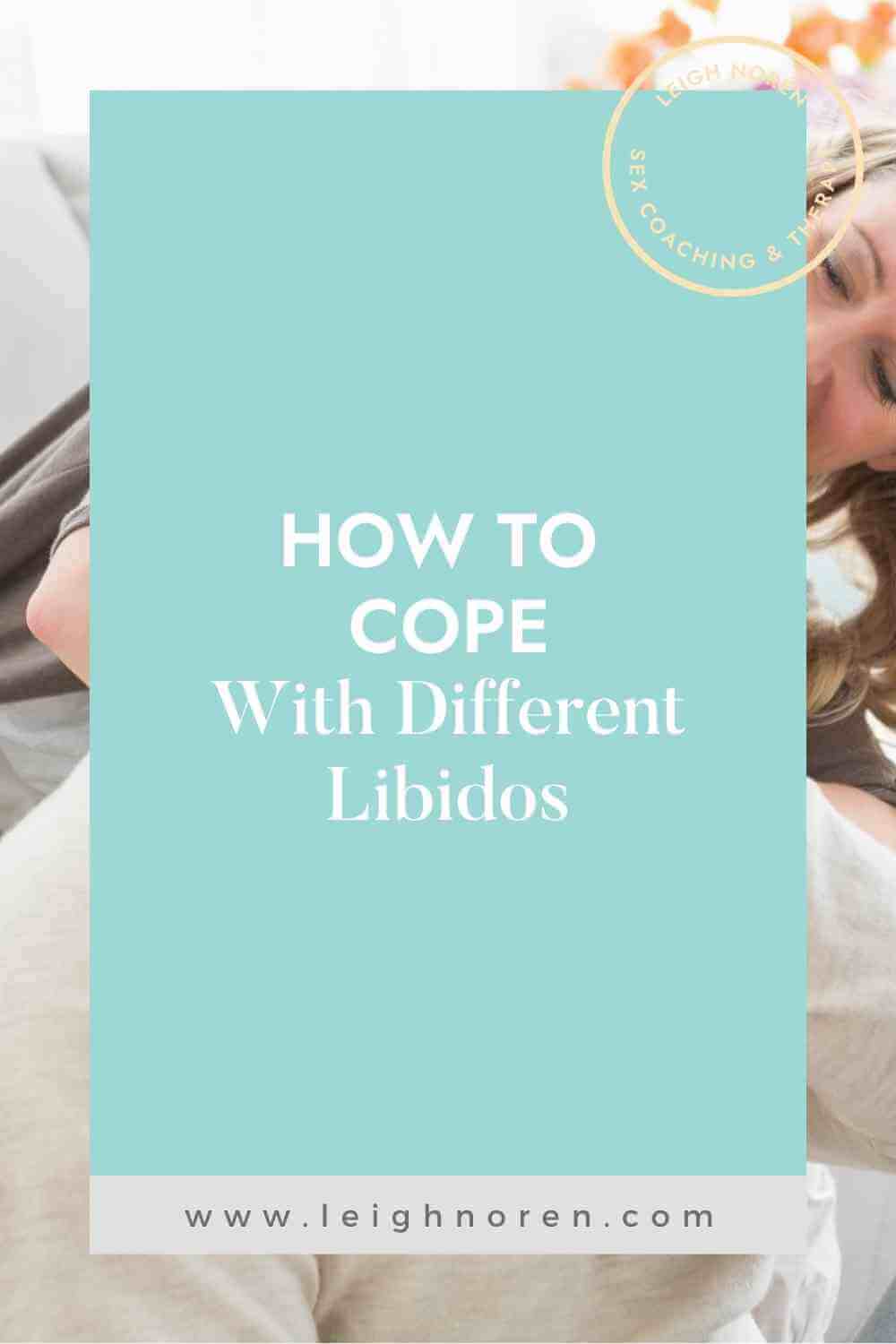Wondering, “Why Has My Sexual Desire Increased?” 12 Things To Consider
Sexual desire is a funny thing – sometimes it’s there, and sometimes it’s not. And very often, it’s unclear why libido comes and goes. If you’re wondering “why has my sexual desire increased”, this piece will help you answer your question, so you’ll know how to get your desire back, the next time it disappears.
12 Reasons Your Sexual Desire Has Increased
1.You’re Getting More Sleep
Sleep is good for a lot of things: it helps our bodies heal, enables our brains to process daily events – and can be great for our libido.
This is because good sleep can protect us from developing anxiety and depression – which are both well-known libido killers. More sleep also leaves us with more energy during the day, and having little energy for sex is one of the most common reasons cited for low libido. With more energy, sex feels more doable.
2. You’ve Found Ways To Decompress
Stress is natural – and essential to our survival. It’s our bodies alarm system that reacts whenever we’re in a potentially dangerous situation, helping us get through it or get out of it.
However, stress also wreaks havoc on our bodies when it’s mismanaged.
Sexual desire rarely thrives during times of stress as our bodies have to prioritize survival over sex. If you’ve been feeling like having sex lately – assess whether you’ve found ways to decompress at the end of the day, and make a promise to yourself to continue with your new-found tools.
3. You’ve Found Ways Of Dealing With Unsolvable Conflict
Conflicts are pretty unsexy. They are, however, part and parcel of relationships. According to researcher Gottman, 69% of our arguments are unsolvable. This means we need to find ways of dealing with these conflicts, so they don’t turn into major roadblocks, forcing us apart.
If you and your partner have been able to better handle these unsolvable conflicts, it might just be one of the answers to your question: “why has my sexual desire increased?”.
Make note of how you’re handling the conflicts so you can go back to this strategy next time a new argument is on the horizon.
4. You’re In A New Relationship
There’s nothing like falling in love with a new partner to supercharge your sex drive. In part, we can thank the crazy amounts of hormones being released in our bodies at this time; testosterone, oestrogen, dopamine, norepinephrine, and serotonin are all running rampant around our bodies.
But our hormones aren’t the whole story – it’s also our actions and behaviours in the beginning stages of a new romance that fuel our desire.
Date nights, long talks, compliments, and physical touch are all things that can make us feel in the mood for sex.
5. You’ve Accepted Your Sexual Orientation
Society has an unhealthy focus on heterosexual relationships. Commercials on tv, relationships portrayed in mainstream movies and examples in textbooks regularly feature heterosexual couples.
Because of this, and the negativity and prejudice surrounding other sexual orientations, suppressing or denying who turns you on, can lead to low libido, shame, depression and anxiety.
If you’ve recently come to terms with who you are and have accepted that you’re not drawn to the opposite sex – it probably has had a positive impact on your levels of desire (and your overall well-being).
6. You’re Spending More Time Without Your Partner
It can seem counterintuitive, but carving out some alone time for yourself, as opposed to spending every waking minute with your loved one – can do wonders for your libido.
According to psychotherapist Esther Perel, sexual desire occurs in the space between us. We need to work on our individuality and keep this space free, so we can fan the fire of desire.
If you’ve been mulling over the question of “why has my sexual desire increased”, spending some time apart could be part of the explanation. Keep this in mind next time you’re unhappy with having no sex drive.
7. You’ve Dealt With Your Anxiety
Feeling anxious can increase some people’s sex drive – however, it more commonly kills libido. This is because anxiety is a state in which our feelings have become unmanageable, causing our body to go into panic mode.
When we’re in this state, sex is usually the last thing on our mind – for a good reason – the onslaught of anxiety is telling us that we’re in danger.
When we find techniques and strategies to deal with anxiety, we feel better, leading our sex drive to come back.
8. You’re Feeling Hot
Sexual desire is triggered by lots of things – among others, feeling attracted to our partner or spouse is one of them. However, equally important, especially considering what triggers sexual desire in women, is feeling attracted to yourself.
When you feel hot, it not only boosts self-confidence and self-esteem, it also puts you in a better mood. Being comfortable in your own skin is often paramount to feeling like you want to have sex.
When asking yourself “why has my sexual desire increased”, it’s important to give this factor a lot of weight.
If your libido should disappear in the future – check in on your relationship with your body and assess if you’ve been feeling unattractive lately – it might be the root cause of your low libido.
WANT YOUR SEX DRIVE BACK?

My free resource The Desire Test helps you take that first step towards an increased sex drive, by understanding your decreased desire.
Take the 10-page assessment quiz, get the answers you need to understand what’s standing in the way of your desire, and get free sex and relationship tips directly to your inbox. You can unsubscribe at any time.
9. You’re Masturbating More
It may seem like masturbation comes from an increased sex drive – as opposed to leads to more libido – however, masturbation is a good way to kick-start desire too.
This is, in part, because the act awakens your sexual focus.
By engaging in sex with yourself, you’re effectively honing in on the things that turn you on, reminding yourself of them.
When your brain is reminded of how pleasurable sex is, it becomes more aware of things that can turn you on in everyday life. The result – an increased appetite for sex.
10. You’ve Stopped Taking Certain Medications
If your sex drive has appeared as if from nowhere and you’ve been asking yourself the question “why has my sexual desire increased”, you might want to direct your attention to what you’ve been putting into your body – and are no longer ingesting – specifically, what medications you’ve stopped taking.
Popular antidepressants known as SSRI’s, often have the unwanted side effect of killing your sex drive.
Even if your depression or anxiety was suppressing your sexual desire to begin with, feeling better because of your medication doesn’t necessarily lead to getting your desire back.
11. You’ve Accepted What Turns You On
Society is filled with ideas about the right things to get off to and, consequently, the wrong things to get off to. As a sex therapist, I’ve found a lot of my clients have a hard time accepting what turns them on. This is often rooted in ideas about what certain genders should like or how they should act.
For example, if you’re a woman whose values are strongly geared towards equality between the sexes – you might find it difficult accepting you like to be dominated in the bedroom. This causes shame and having sex that doesn’t turn you on – resulting in low libido.
If you’re more readily enjoying sex now and feel in the mood more often, step back and have a think about the kinds of sex you’re having now and how they differ from the sex you had before. This can be a good way of boosting low libido in the future.
12. You’ve Understood How Your Libido Works
One of the most important reasons it’s good to understand why your sexual desire has increased, is so you can increase your libido again, should you experience sexual desire changes..
This is part of what we, as clinical sexologists, try to do in sex therapy. Together with a client we gain an understanding of why their sexual desire once was alive and well. By doing this, we can begin to understand what needs to be changed in order to get it back.
While this isn’t only one piece of the puzzle – it’s an important one. It takes the mystery out of your sexual desire and puts you back in the driver seat, so you can influence your desire the way you want to.
The question: “why has my sexual desire increased”, is an important one to ask yourself. There are likely lots of different answers depending on who you are and what affects your libido. For most people it’s usually about several factors across the board; biological ones like stopping certain medications, psychological ones like accepting what turns you on, and relational ones, like dealing with unsolvable arguments.

Zero sex drive?
You’re not alone! Download the 10-page Desire Test to find out why your desire for sex is gone (and what to do about it).
Questions based on a variety of factors proven to negatively affect desire
Find out which factors are responsible for your low or non-existent sex drive
Get instant access to expert advice, delivered directly to your inbox when you download The Desire Test. Unsubscribe anytime.
WANT TO KNOW MORE ABOUT THE DESIRE TEST?
With 9 years of experience as a sex therapist and coach - Leigh helps her clients create stress-free, shame-free, pressure-free sex lives, through her unique combination of sexological science, & psychotherapeutic & coaching tools.
OTHER POSTS YOU MIGHT ENJOY
Copyright © 2019-2026 Leigh Norén. All Rights Reserved. | Website by Pinegate Road
Cookie policy | Terms & Conditions | Privacy Policy


